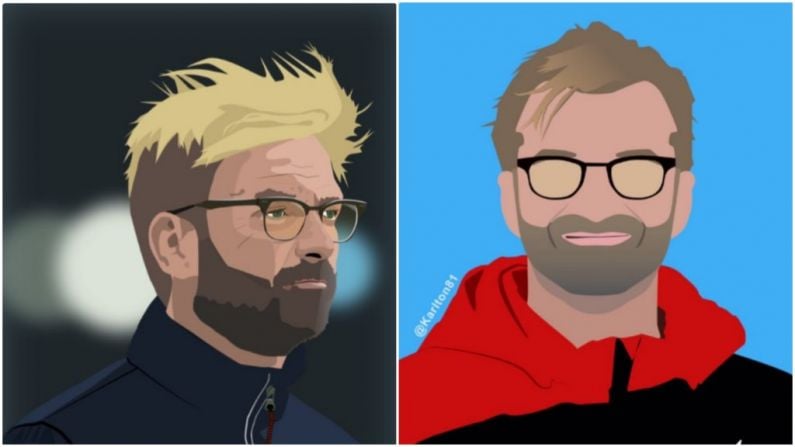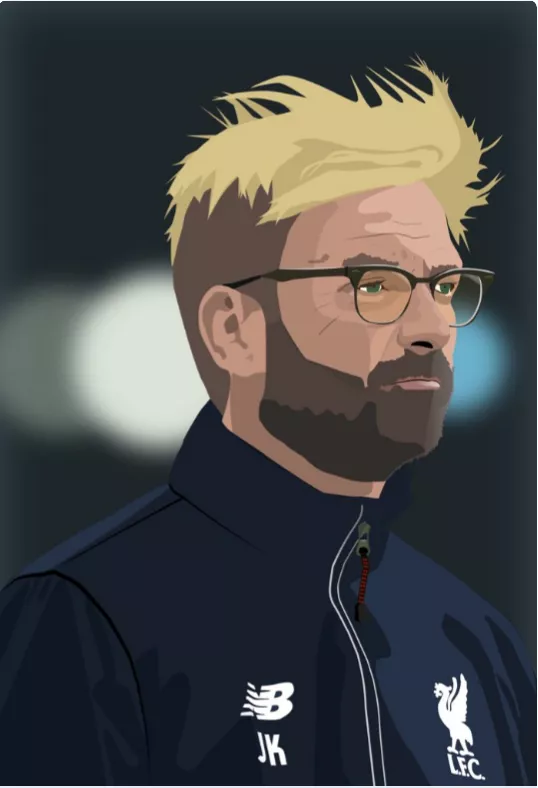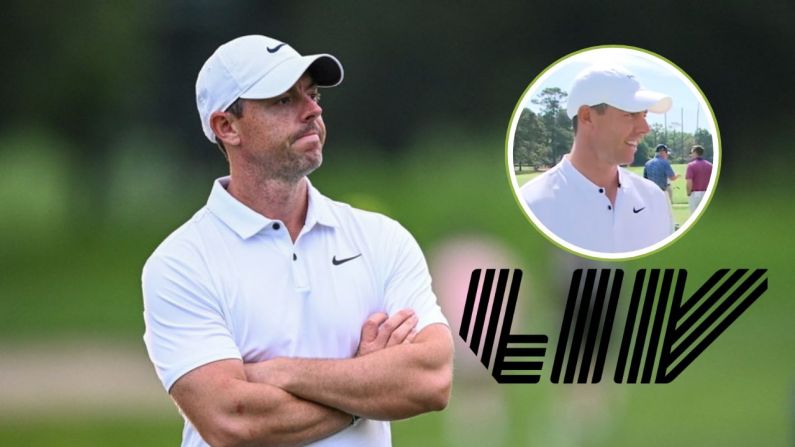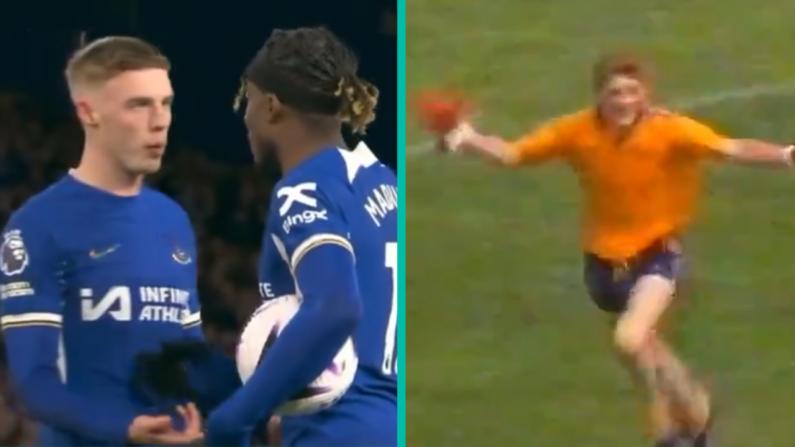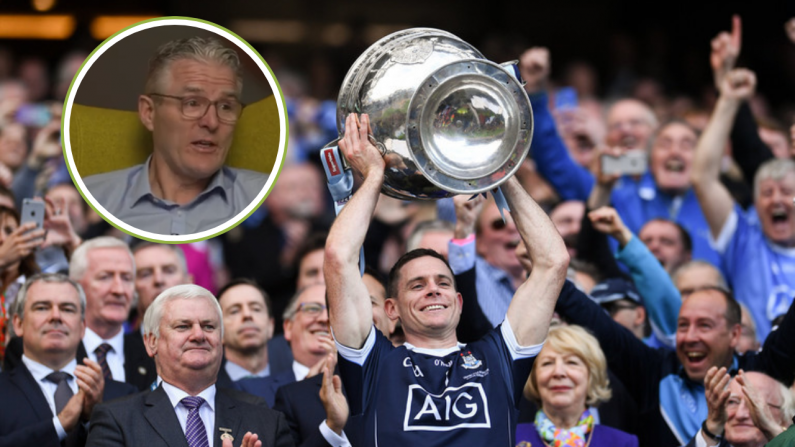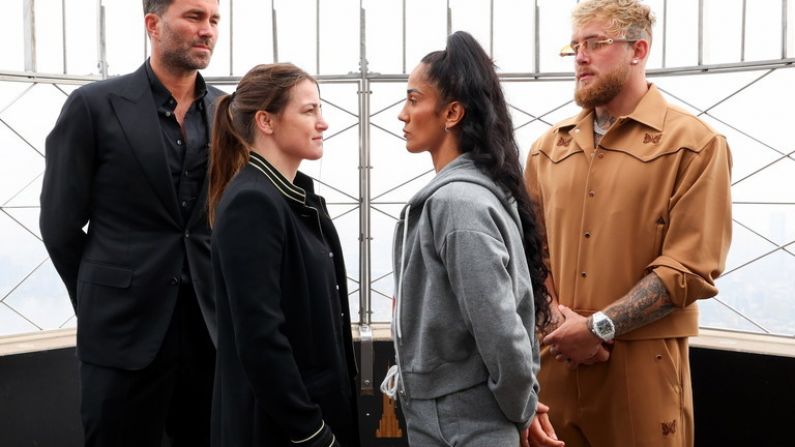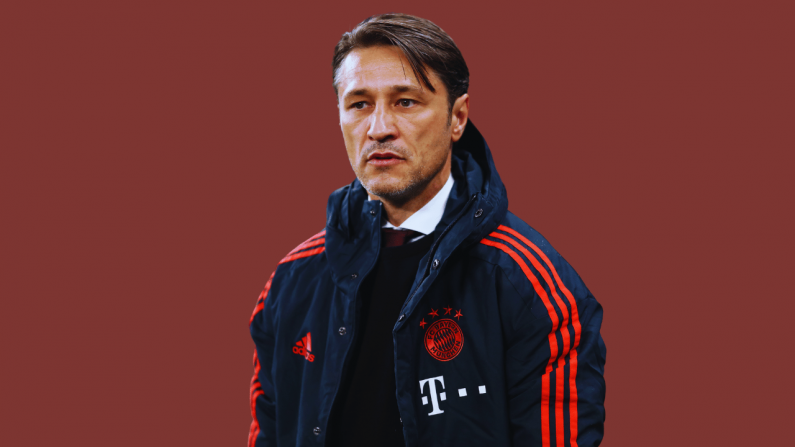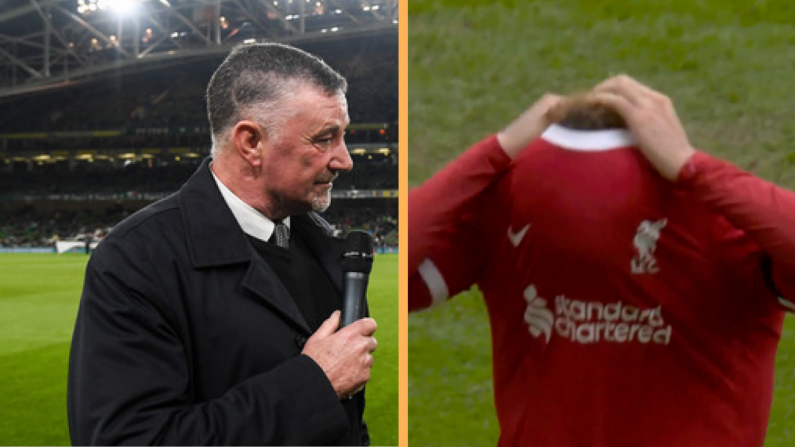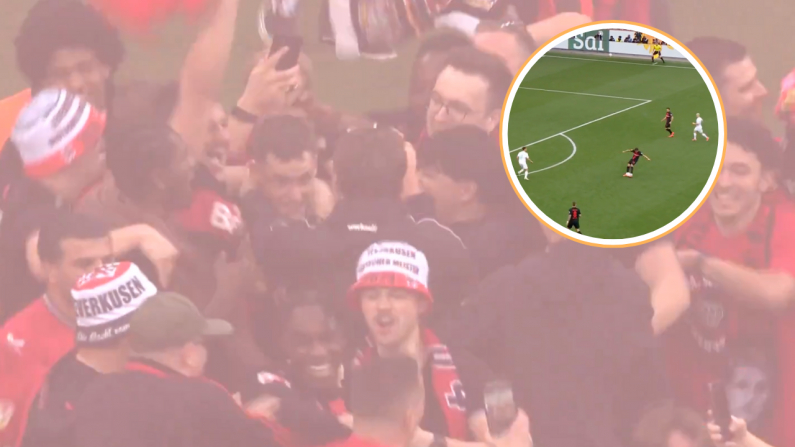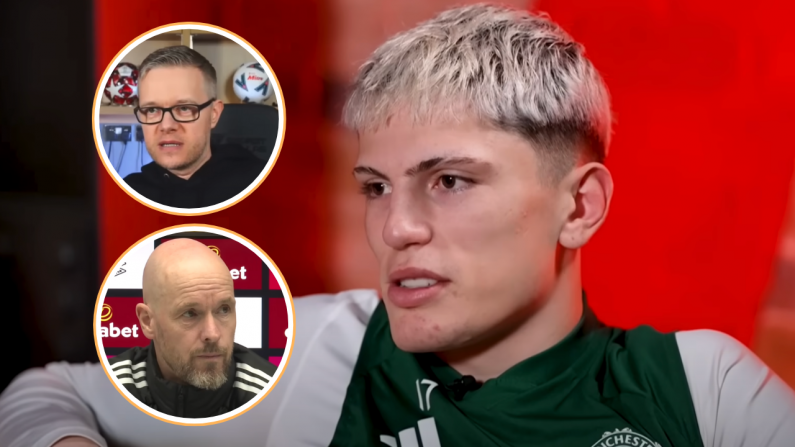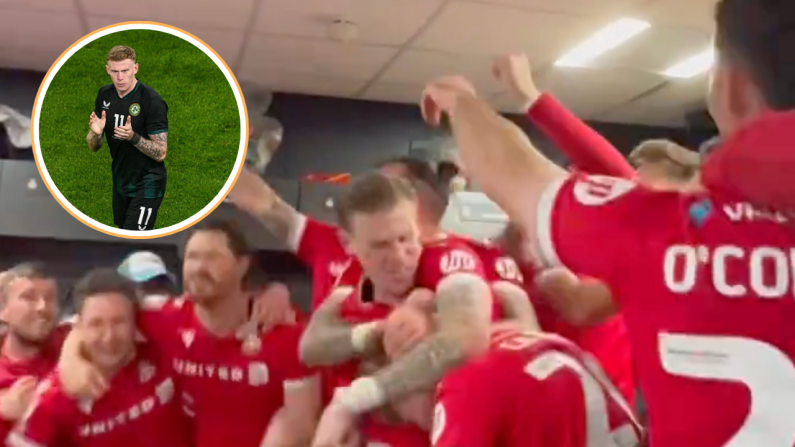If a man who thinks he is a king is mad, a king who thinks he is a king is no less so. - Jacques Lacan
I am the normal one. - Jurgen Klopp
Uli Hesse remembers a conversation with an old friend. Hesse is the author of Tor! The History of German Football, and was crafting an oral history of Borussia Dortmund's support when he met an old friend, Lenny, who had been supporting Dortmund since the 1960s. Throughout the course of their conversation, Lenny revealed that he no longer had a season ticket.
When Hesse asked when he had given it up, Lenny replied "1996". Hesse was shocked: "1996? That was the year everyone was trying to get a season ticket, we won the Champions League a year later!”. “But that was not my team anymore. It was all these expensive players signed from Juventus. This Klopp team, that's my team. Young players who play football the way I want it to be played".
Someday I'll find out what today really meant.
In 2003, Mainz had just missed out on promotion to the Bundesliga on the final day for the second time in a row in gut-twisting fashion. As the final whistle of Mainz’ season blew, they were promoted. Yet Eintracht Frankfurt were still playing, and scored a goal in the dying embers of the season to clamber over Mainz and leap to the Bundesliga by virtue of having scored a single extra goal.
A desolate Klopp declared afterward that "I don't believe in a football god, only God. I believe that everything happens for a reason. Someday I'll find out what today really meant".
Klopp’s youth meant winning.
This intractable desire was instilled at a very young age by his father. As Klopp recalls, "he was ruthless. When we went skiing, I only ever saw his red anorak from behind. He never waited for me. It didn't matter if I was a beginner”.
Jurgen, however, was most drawn to football and ultimately signed a professional contract with FSC Mainz. He started as a striker but retreated toward his own goalkeeper as his career progressed, ending up as a centre-back. A fierce desire burbled along during his career, and occasionally boiled over. In 2005, he agreed to be hooked up to a lie detector for an interview with RUND magazine.
Shortly before I was made manager [of Mainz], I head-butted a very good friend of mine, Sandro Schwarz. He had twice put me on the floor in training. I got up, all I could see was his face in front of me, and then he was down on the ground... I just wanted to die. I couldn't bear the thought of what I'd done.
Wolfgang Frank coached Klopp at Mainz, and became the man who had the greatest tactical influence on Klopp. Frank somewhat crudely explains this loss of control in the context of Klopp's relative lack of talent: "Sometimes he lost control out on the pitch because he had many good ideas in his head, but not the footballing talent to act upon them". Klopp, however, agrees. "I never succeeded in bringing to the field what was going on in my brain. I had the talent for the fifth division and the mind for the Bundesliga. The result was a career in the second division".
Aside from the backhanded compliments, Frank exerted a big influence on Klopp. His ingenuity upon taking over Mainz in 1995 saved them from relegation, with the new manager going against the tactical consensus in Germany by not playing a libero, or sweeper. The position had a deep tradition in Germany, the country of Franz Beckenbauer, Matthias Sammer and Lothar Matthaus.
Frank, however, demurred from tradition and made Klopp a centre-back in a more compact 4-4-2. Any team using a sweeper left a lot of space between their defence and midfield, so Frank’s Mainz became much more compact. He trained them how to move in unison, tying the back four together with rope. With players close together and moving together, Frank’s Mainz limited amount of space available to the opposition with the fundamental idea to force the opposition into a mistake.
Frank's methods worked immediately: Mainz finished a comfortable 11th. Their biggest problem was replicating it after Frank left in 1997. Mainz identified with Frank's method of playing, but could not find a replacement manager capable of implementing Frank's innovations. They subsequently went through six managers before the club's Sporting Director Christian Heidel admitted that the players knew more about the club's style of play than any of the managers he hired.
Enter Jurgen Klopp.
Mainz were in danger of relegation when Heidel turned to one his centre backs in 2001, and Klopp accepted the job under one condition: he would not countenance a role as player-manager.
Thus his playing career ended the day his managerial began, with the latter doing so in style: seven straight wins saw Mainz survive. The momentum continued, and although Mainz twice missed out on promotion on the final day, the third attempt proved persuasive.
Mainz spent three years in the Bundesliga – twice finishing eleventh - before eventually succumbing to the natural order. Not that relegation caused Mainz supporters to want rid of Klopp. He remained on the condition he would resign if he failed to get them promoted, which ultimately happened.
At Mainz, Klopp found that meaning he had been looking for. The day after asking that question in 2003, a tearful Klopp defiantly roared at a rally of Mainz fans "yesterday I asked myself what it all means, and then I realised: someone has decided that it's necessary to show people that you can really get knocked down twice, three, four times and still get up again, and they thought...there's no better city for it than this".
The collective effort and hard work required for tiny Mainz to compete in the Bundesliga is the point for Klopp: a microcosm of the industrial mindset of the people he represents.
Klopp would go on to say that holding out against a bigger opponent is an "important experience for the mind and the heart, because it is at times like those you understand that you've got a little more in you".
I love human beings.
Borussia Dortmund figured that there was a lot more to Klopp, and appointed him to a club still ravaged by crisis. Klopp began life at Dortmund by touring fan clubs and speaking to supporters. Uli Hesse says that supporters initially thought that these meetings were organised by Klopp so he could alter their opinions of him and to stress that he, as an outsider, would work extremely hard to bring them success.
Not so. Klopp used these meetings to prepare fans for the unpopular decisions he was about to make, namely the offloading of Dortmund's top two strikers, Mladen Petric and Alexander Frei. They didn’t fit Klopp’s hard-running, collective style.
Klopp’s mission wasn’t to win trophies, but simply to stir a torpid giant. The club were not in a position to compete at the top of the Bundesliga, anyway: they were still paying the consequences of a bail-out in 2005, when the club faced extinction owing to years of financial mismanagement. To service the heavy debt, the club sold the Westfalenstadion and accepted a €2 million loan from Bayern Munich to help cover the wage bill.
The bail-out gave the club a chance to re-establish their values, and the directors all agreed to a plan of action which amounted to a cultural charter. This ranged from buying back their ground to a pledge to always play in yellow and black.
Yet something was missing, and results remained poor.
The atmosphere was craggy, cramped and uncomfortable. 80,000 people for whom football is the most important part of the week bring with them a level of knowledge and expectation that can be overbearing. Before Klopp's appointment, his biographer Elmar Neveling wrote, "When a pass was intercepted, the sound of 25,000 people falling silent was very loud".
Things had become so stale that Hesse remembers a fellow Dortmund fan citing manager Thomas Doll when asked why he did not celebrate a late equaliser against Bayern Munich in the 2008 German Cup final: "if we win, we will never get rid of that asshole".
Klopp was hired to re-energise the entire club. This was partly because of his performance at Mainz, but also as a result of his work as a television pundit during the 2006 World Cup where his charisma and loquacity charmed a nation.
Hesse's experience of watching Klopp was the same as Heidle's at Mainz: "He is a natural in front of camera, it is a gift. He always finds a new expression, he always says something you think you have never heard before".
To invigorate the club, Klopp spoke of his side playing with an intensity so strong it would vibrate: "When you sit in this stadium with your eyes closed, you should sense there is a passionate team on the field below". He wanted a team of which the locals could be proud. When Klopp took over, unemployment in the region was 13%, and while he admitted he could not change the economy, he would strive to "give them a moment of happiness".
In the beginning, he aimed to do this by simply running around. This belief in hard work was the mentality of the Ruhr region: mistakes are accepted if honest work is put in and the basic direction is right. Klopp won his first game in charge, the German Super Cup against Bayern Munich, in which they ran 121km in 90 minutes. In the league, however, things started slowly, with one win the opening seven games.
Delving into these games, the manager realised that his side had covered less than 113km on average. At the next training session, Klopp challenged his side to cover more than 118km in nine of their next 10 days training, with the reward being an extra three days holidays.
It worked: Dortmund won their next seven games.
Klopp’s introductory meeting with fans showed a man of intractable conviction, and he held it in front of his players, too.
He initially played 4-4-2, later saying that "in the beginning we weren't focussed on what was good for the players, but exclusively on the best way to teach them our system". The starting point for Klopp was what his teams did without the ball, thereby inculcating a collective idea of pressing from which Dortmund could evolve.
And evolve they certainly did. With the breakthrough of Mario Götze and Nuri Sahin and the signings of Neven Subotic, Mats Hummels (both were just teenagers when they won the league), Ilkay Gundogan and later Robert Lewandowski, Klopp's Dortmund brought a sound and fury hitherto unseen in German football.
Exhorting it all on the side line was Klopp: an uncontrollable spirit constituent of manic snarls, snorts, and bellows. Surrounding him was a raucous Westfalanstadion, amplifying the wild noise of their manager. Dortmund found new heights. winning back-to-back league titles and sealing the German Cup with a historic 5-2 demolition of Bayern.
Klopp had not just prodded a slumbering giant into life, he had hung headphones on its ears, turned the noise up to eleven and stood back to watch the riot ensue. Dortmund dispelled a myth about Klopp. He is far more than the character he was on television: he is the consummate winner.
When he met Matthias Sammer - the last Dortmund coach to win the Bundesliga before him - after his first league title in 2011, he spoke of his confused emotions. Sammer replied that "in that moment, you felt pure relief - and that's what the true greats feel".
The successes of awakening and subsequently adorning Dortmund stems from Klopp's style of play: the tactical teachings of Wolfgang Frank infused with a kind of relentless emotional intensity.
The emotion requires the essence of Klopp's character. Thomas Hitzlsperger says that for Gegenpressing to work, players can have no doubts. "You have to completely accept it. Whoever pulls you back and hesitates endangers the success of the team". Klopp achieved this with his Dortmund squad: just as intense as the football was the bond fostered between Klopp and his players.
When Shinji Kagawa left for Manchester United, the midfielder wept in Klopp's arms for twenty minutes. When Mario Götze decided to leave for Bayern Munich, Klopp was left so bereft he had to leave work early and cancel a social engagement that night.
It stems from his concept of leadership, which he says is simply "giving the right advice at the right time", achieved by being "close to the human being".
Klopp speaks of management as his extraordinary privilege.
At Dortmund, the character he knew he had but could not be brought forth by his lack of talent was being displayed all around him. “The really unbelievable thing about these players' is that their greatest quality lies beyond the pitch. It's their character" beamed Klopp about his Dortmund players after one of their Bundesliga titles.
When he joined Liverpool, Klopp told BT Sport of his religious beliefs, which boil down to the aim to "leave a room and try to make sure that people don't feel worse from the moment you came in".
Consider that line when looking at his Dortmund farewell:
Regarding the public, I'm super lucky because I really don't care at all what they think.
Much of Klopp's character can be distilled in those meetings with fan clubs at Dortmund. Klopp did not use them as an opportunity to change a perception of himself, as such a thing, to Klopp, would be an enormous waste of time. Personality, to Klopp, is something so manifest and blatant that it is impossible to hide it or shape it. Hence the praise for his players character at Dortmund.
Klopp manages to be himself as he does not detach himself from the present moment to give his own personality a thought.
It is telling that when asked if he had a football philosophy in that BT Sport interview, Klopp replied that he never had time to think of one. Polonius' advice to 'thine own self be true' might be useful for Klopp if he ever took the time to realise that it were possible to be any other way.
Hesse says that Klopp shares a characteristic only seen in Tibetan monks: he is always totally present in the moment.
When you interview him, he will look at you, he is not like many footballers and managers who will gaze off to the side and lose interest after a minute.
Klopp is totally focussed and always interested. He has this uncanny ability of connecting with people.
Klopp's living in the moment is the well from which his charisma and enthusiasm springs and is why he plays the style of football he plays. His teams play the same way: emotional; thriving on the moment.
[Living in the present is] The only way to influence the future. If you always live in the future, and hope something happens in the future, you forget that you have to change in the future. If you live in the past - maybe it's nice for old people to look back on nice memories - but we are not in this phase in life. We should do what we can to make things better.
This obsession with the moment is how Klopp makes it better; it is how, as he says, "to hold out against a bigger opponent". At his introductory press conference at Liverpool he spoke of how "you have no control over the other team. If they are really good you have to bring them to your level. On your level, you can kill any team".
Klopp’s words became flesh on his first great night in charge at Anfield, against his old club.
Dortmund were objectively better than Liverpool, and led 3-1 at Anfield with half an hour to go. Yet half an hour later the ground reverberated in its own, unique way, as a shell-shocked Thomas Tuchel muttered into microphones beneath the main stand that 'this is not logical'.
Hesse cites an article that appeared in the German press the following day.
There was a lot of talk in the German media after the second leg. How could Dortmund lose the game? After leading 3-1? There was a very good piece in Die Zeit that said modern coaches like Thomas Tuchel are from the Guardiola and Van Gaal School of Coaching. What these modern coaches value above all else is control, 'we have to be in control at all times and we have to have the ball’.
What Klopp likes is when things get out of control, because at that point it is all about emotion, about passion, and at that point it comes down to how much you want it. This is when Klopp's teams are at their best.
Klopp creates the situation in the game where it is no longer about tactics, but about getting stuck in and making tackles, and Dortmund lost their heads among this Klopp whirlwind.
It’s been evident in the swathe Liverpool have cut through Europe this season, scoring goals in gluts while their opponents are reeling: three in 15 minutes against Spartak and Maribor; two in four minutes at Porto; three in 19 minutes against City; three in 15 minutes at home to Roma.
This is the gameplan and has been honed with extensive work on the training ground, but it’s greatly aided by Anfield.
Neil Atkinson is the principal host of The Anfield Wrap podcast and is one of the most eloquent voices on Liverpool working in the media today. After the Dortmund win, he spoke of the differences between the respective crowds.
Whereas Dortmund fans diligently chanted in unison throughout the game, Atkinson says the "Anfield crowd knows when to scream at you", as they "understand moments" in a football match. The run in this season’s Champions League has melded Liverpool’s hectoring with a hectic Anfield and has largely bewildered opponents.
Klopp is similar to Diego Simeone in consistently cultivating responses from the crowd. He has been unafraid to challenge them: he complained of fans leaving early against Crystal Palace in December, and chided fans during a dreary 0-0 draw with Stoke last month for not “being on their toes”.
But in spite of some early turbulence – the derision of the salute to the Kop at the end of a 2-2 draw with West Brom and a mass walkout in protest at ticket prices in February 2016 – the squad and players have become closer. Klopp’s selection of local teenager Trent Alexander-Arnold helps in this regard, but there have been other examples: the players now regularly toss their shirts into the crowd, and Alex Oxlade-Chamberlain has sourced tickets to the European Cup final for a couple of Liverpool fans who missed out on a pair in the pre-final ballot.
Klopp's idea of himself as the "normal one" -essentially himself - is in stark contrast to Brendan Rodgers, who ended his Liverpool reign by trying too hard, by being all things to all men - motivator, coach and tactician. Klopp's belief in one style of play has at least given supporters the impression of a group of players working hard, with a unified sense of purpose.
The predecessor he is most similar to is Rafael Benitez. There have been early parallels: Klopp signed his Liverpool contract in the same room of the same hotel as Benitez did, and both men led Liverpool to a League Cup and European Final in their first season while finishing miles off the Premier League pace.
The great paradox for Benitez' Liverpool was that the great moments arrived in moments of a total loss of control: the 2005 Champions League games against Olympiakos, Chelsea, and AC Milan; the 2006 FA Cup final. While these games seem to happen because of the maniacal crowd and almost in spite of Benitez, who obsesses over control, Klopp seeks to replicate such moments.
He’s done exactly that, but now he aims to emulate Benitez’ greatest achievement. Should he do so, he will be hoisted high by Anfield and proclaimed a king.
Not that Klopp will agree: his career has been dedicated to bringing out the best in those who surround him; he will say he has walked with kings throughout his career.
This man of demotic idiom but demonic intent is in no danger of losing the common touch.
Illustrations by @Karlton81 on twitter. You can purchase his prints here.

